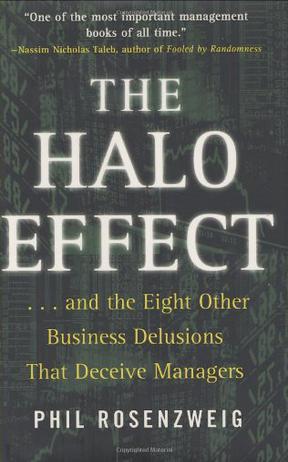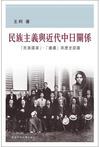Much of our business thinking is shaped by delusions -- errors of logic and flawed judgments that distort our understanding of the real reasons for a company's performance. In a brilliant and unconventional book, Phil Rosenzweig unmasks the delusions that are commonly found in the corporate world. These delusions affect the business press and academic research, as well as many bestselling books that promise to reveal the secrets of success or the path to greatness. Such books claim to be based on rigorous thinking, but operate mainly at the level of storytelling. They provide comfort and inspiration, but deceive managers about the true nature of business success.
The most pervasive delusion is the Halo Effect. When a company's sales and profits are up, people often conclude that it has a brilliant strategy, a visionary leader, capable employees, and a superb corporate culture. When performance falters, they conclude that the strategy was wrong, the leader became arrogant, the people were complacent, and the culture was stagnant. In fact, little may have changed -- company performance creates a Halo that shapes the way we perceive strategy, leadership, people, culture, and more.
Drawing on examples from leading companies including Cisco Systems, IBM, Nokia, and ABB, Rosenzweig shows how the Halo Effect is widespread, undermining the usefulness of business bestsellers from In Search of Excellence to Built to Last and Good to Great.
Rosenzweig identifies nine popular business delusions. Among them:
The Delusion of Absolute Performance: Company performance is relative to competition, not absolute, which is why following a formula can never guarantee results. Success comes from doing things better than rivals, which means that managers have to take risks.
The Delusion of Rigorous Research: Many bestselling authors praise themselves for the vast amount of data they have gathered, but forget that if the data aren't valid, it doesn't matter how much was gathered or how sophisticated the research methods appear to be. They trick the reader by substituting sizzle for substance.
The Delusion of Single Explanations: Many studies show that a particular factor, such as corporate culture or social responsibility or customer focus, leads to improved performance. But since many of these factors are highly correlated, the effect of each one is usually less than suggested.
In what promises to be a landmark book, The Halo Effect replaces mistaken thinking with a sharper understanding of what drives business success and failure. The Halo Effect is a guide for the thinking manager, a way to detect errors in business research and to reach a clearer understanding of what drives business success and failure.
Skeptical, brilliant, iconoclastic, and mercifully free of business jargon, Rosenzweig's book is nevertheless dead serious, making his arguments about important issues in an unsparing and direct way that will appeal to a broad business audience. For managers who want to separate fact from fiction in the world of business, The Halo Effect is essential reading -- witty, often funny, and sharply argued, it's an antidote to so much of the conventional thinking that clutters business bookshelves.
曾在惠普任职七年,并在哈佛商学院执教六年,在欧洲、美洲、亚洲等地区都开设了有关执行的课程,并为微软、戴姆勒-奔驰、雷诺、雅高、迪拜铝业、沃达丰、MTN等著名企业提供顾问服务,主要研究领域为全球战略制定、跨国企业组织设计、行业分析和竞争、客户服务、FDI。
目前已出版《国际管理:教程与案例》(International Management, Text and Cases)(合著)、《加速国际化成长》(Accelerating International Growth)(合著)等著作。
 The Halo Effecttxt,chm,pdf,epub,mobi下载
The Halo Effecttxt,chm,pdf,epub,mobi下载 首页
首页



需要静下心慢慢看
理解起来更容易
比较容易理解。
收到期待观看